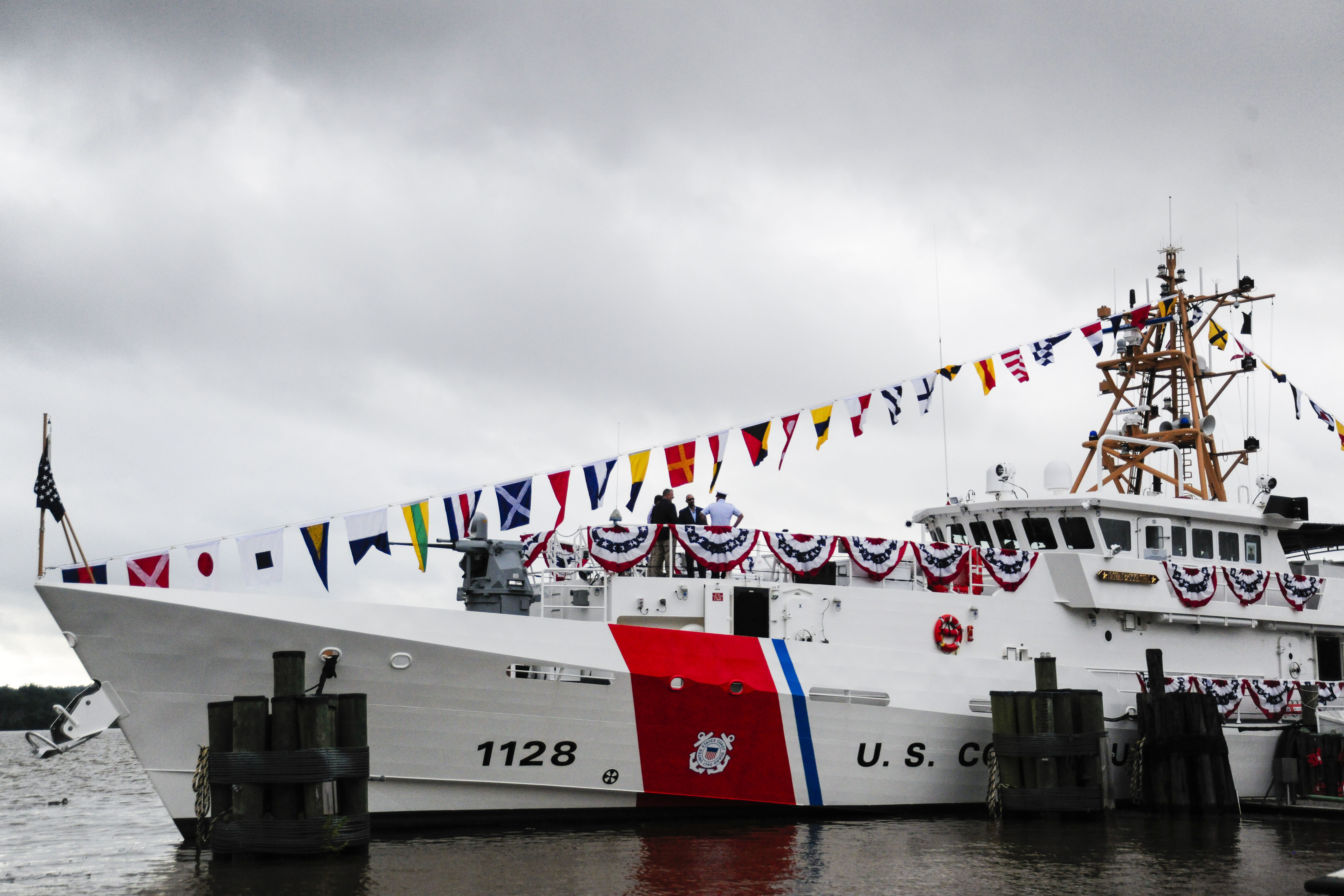
The House approved a $12 billion Fiscal Year 2020 funding deal that puts limitations on the Offshore Patrol Cutter program while moving ahead with funding for polar icebreakers, Fast Response Cutters and long-range surveillance aircraft.
The FY 2020 total is $49.8 million less than what the service received a year ago but is $846.7 million more than what was initially proposed in President Donald Trump’s FY 2020 budget request, according to a statement from the House Appropriations Committee.
The House approved the FY 2020 funding of $67.8 billion for the entire Department of Homeland Security on Tuesday. The funding was part of a $1.4 trillion spending bill Senate and House negotiators created that avoids a possible federal government shutdown at the end of this week. The spending bill still needs Senate approval and Trump’s signature before becoming law.
The bill provides $100 million for the Coast Guard to purchase long-lead-time materials for its second planned heavy icebreaker in its Polar Security Cutter program. Earlier this year, the Coast Guard awarded a $745.9 million contract to build the first of six-planned Polar Security Cutters. Delivery is expected in 2024.
Currently, the Coast Guard only has one heavy icebreaker, the four-decades-old USCGC Polar Star (WAGB-10). A second, USCGC Polar Sea (WAGB-11), suffered a catastrophic engine failure and has been used for parts to keep Polar Star operational.
The Coast Guard’s other significant acquisition program, the Offshore Patrol Cutter, is funded but with significant strings attached. The Coast Guard plans to purchase a fleet of 25 OPC. However, the program was delayed because of hurricane damage to the shipyard of the prime contractor, Eastern Shipbuilding Group.
The result is the program’s FY 2020 funding was cut by $14 million while Eastern Shipbuilding works on delivering the first two of four contracted hulls, according to the House Appropriations Committee.
The Coast Guard requested contract relief to get the program back on track and as part of this, the FY 2020 funding bill places strict oversight on the program, including increased “scrutiny of the costs borne by the Coast Guard.” Coast Guard officials also are instructed to brief Congress quarterly on the metrics used to evaluate adherence to production timelines and costs.
The Coast Guard is in the process of recompeting the contract to build OPC hulls five through 25. Eastern Shipbuilding was initially awarded the contract in September 2016.
Appropriators decided to fund a pair of programs above what the Coast Guard initially asked.
The Coast Guard requested $140 million to buy two new Fast Response Cutters in Fiscal Year 2020. The Coast Guard is getting $260 million to use to purchase four of these cutters.
The Coast Guard receives funding for a host of other programs, including $105 million for its HC-130J aircraft. The Coast Guard uses these versatile planes for counter-narcotics operations, long-range search and rescue and marine safety missions.
In March, Commandant of the Coast Guard Adm. Karl Schultz told lawmakers the service needed to add more HC-130Js to its fleet of six aircraft. However, when developing the FY 2020 budget request, Schultz conceded the service prioritized funding for other programs, and left the HC-130J’s fate up to Congress.
“As we make topline decisions, that is one that just has not been able to fight into the mix,” Schultz said in March . “But Congress has seen fit that that aircraft is absolutely essential to our maritime patrol.”





